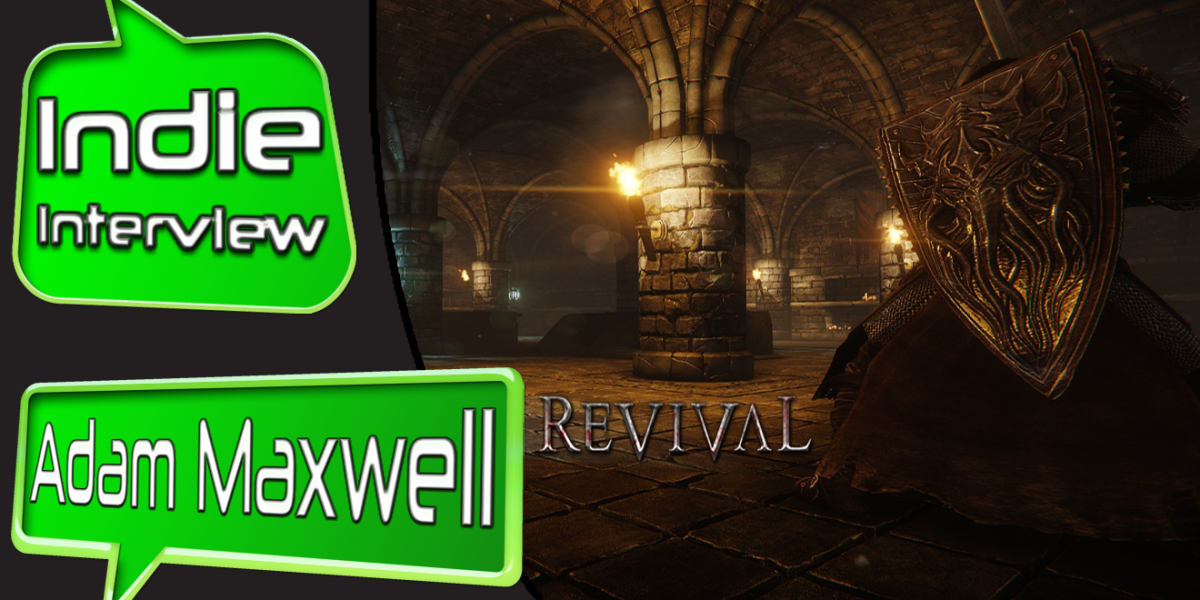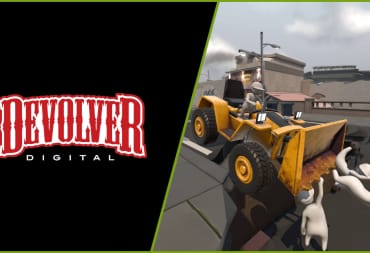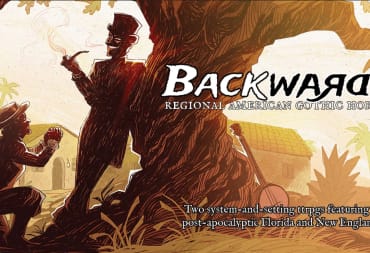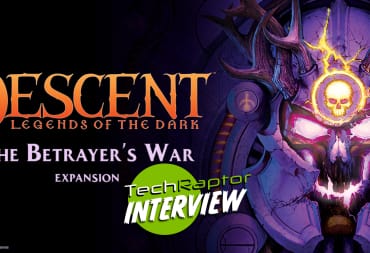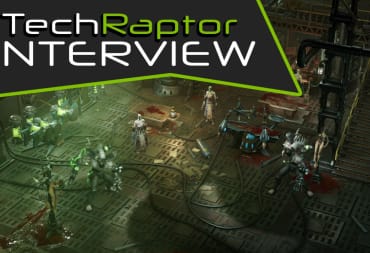When we were tipped about the existence of Revival – an MMO game in development – by a fan of the game and Techraptor, I went and took a look. I wasn’t expecting a ton, a lot of MMO's are very similar. What I found there was an incredibly ambitious project taken on by Illfonic, and so as I looked around, I reached out to them to talk about their game. I was able to get an interview with Adam Maxwell, one of the lead designers.
We’ve broken this interview up into two parts as exchanging emails me and Adam went on for quite a while with it clocking in near 7500 words without stuff like this introduction. Because of that, we’ve split the interview into two parts – this first part discussing the team some and mechanics with the second discussing more in the way of Revival’s storytelling and ambitious plans on politics, houses, and live storytellers.
I’d like to thank him for his very in-depth responses and if you are interested you can check out Revival’s website.
TR: Can you tell us about yourself, the team on Revival, and what you do?
Adam: Certainly! I'm Adam Maxwell, one of the two lead designers on the project. I lead the effort to design the game's systems. I'm in charge of the sandbox, basically. :) I've been knocking around the game industry in one form or another for about twenty years, but most of that time I've been a designer with a couple of diversions down the producer path. I originally got my start in QA with little companies out in southern California, including a tiny studio called Blizzard Entertainment that was working on a sequel to its first RTS, a game called Warcraft. As a designer, I've worked on tons of different projects, including console games for the original PlayStation, Xbox and later the PS2, PS3 and Xbox 360, but over the last decade, most of my work has been on MMOs, starting with Auto Assault, then onto Rift where I was the game's lead designer and principal systems designer for several years and later into smaller projects for Gazillion such as Fortune Online.
I'm not actually unusual in that regard, either. For example, on the design side of the team, Kedhrin (our creative director) and Chris Holtorf (My partner in crime, the lead designer who is our principal world and lore master) are both veterans in the PC, console and MMO space and of course, all of IllFonic has some experience in the field thanks to the projects we've been working on the last few years. We're really lucky to have the team we do, in fact.
Sure, we're tiny, but we are mighty! :)
TR: Are there plans to bring in the other Illfonic studio, or to substantially increase the team down the line? How does that normally work?
Adam: We commit each team to their projects fully, so we're not likely to pull folks off of one team to put onto another unless they're already done with the project, but we will definitely be expanding the team as time goes on. The plan is to operate at the smallest size possible that each phase will allow, but as you can tell by looking at the phases we have planned, some of them are pretty large. There's going to be a lot more of us, as we move on.
TR: Revival takes aim at the stagnation in the MMO market that hasn’t really moved since Everquest and World of Warcraft. Why do you think it is, and why has storytelling gone backwards since the days of the MUD in online games?
Adam: That's a tough question. Not so much because it's hard to answer, but because honestly, no one in the industry likes my answer: Especially in the MMO space, we're not an industry that values taking risks. We instead invest our time chasing profits, often killing the souls of the dev teams doing the work, along the way. In a lot of ways, Revival is more than a game pitch; it's also an emotional response to the soul-rending grind that is working on a modern MMO for most devs.
Most of us, we get into this industry to make fun games, not millions of dollars in profits, but if you own a publisher, or a self-publishing studio, do you really have the luxury to pursue what you think is fun at the risk of losing the profits that will keep you alive? A lot of the industry's executives feel like they have an obligation to pursue those life-sustaining profits and so, to them, that means doing what they "know" works. The result is an entire industry chasing WoW's tail, hoping to capture a fraction of its success. The problem is that it’ll never work: As counter intuitive as execs may find it, what WoW did right can't be recaptured. It's not about mechanics; EQ and EQ2 were already moving in the direction WoW took and neither did as well. It's not about IP, either; WAR had the IP that inspired Blizzard to make Warcraft and it didn't do as well as WoW, the derivative IP, did.
Blizzard's success isn't obtainable by copying them. You have to be them. The rest of us need to find another way and, for us, that means recapturing the ephemeral "cool" that tempted us all into online play in the first place. That's what Revival is about. We've spent a lot of time thinking about what it was we loved that is missing now, so we can make sure it's all back in Revival.
TR: Revival wants to do a lot of unique things MMO-wise so let’s talk about a few of them here. First up – what is your plan to make combat more dynamic, and less hotbar dependent? How in this case will you make the character’s skill as important as player skill for first person combat?
Adam: Actually, we're not going to make your character's skill as important as the player's skill. OK, admittedly that's deliberately a bit provocative, but it's true: Player skill > character skill everywhere player skill plays into the game. Different systems have different ways to make that possible, and for combat the system in place uses player skill to make sure your attacks land successfully, and then character skills (and gear and the like) to determine how much damage is done.
Our combat system presents itself to players as a sort of a cross between console brawlers, like the Batman series, and first person shooters. There isn't even a real hotbar; though we do let players bind abilities to "buttons" on screen, that's more for things like pet commands or activating non-combat abilities, like vision modes. Instead, it's mostly based on keyboard+mouse or gamepad input: As you develop character skills, the moves you can use and combo grow, but it's up to the players to stay on target, pick the right attacks, dodge, etc. The result is an action packed melee brawler as satisfying as any single player console action game or action RPG.
TR: Natural Skill Development is something that you have down as a primary character building way, but in practice that has often had issues with exploits and such in games like the Elder Scrolls series. How do you guys plan to implement it to avoid people just spamming doing things to upgrade and break parts of the system?
Adam: It's definitely a problem for games like this. Any old-school player of UO remembers the days of folks macroing everything from combat to poison resistance. It's a tough problem to solve too, because at the end of the day the goal of a natural development system, that your character reflects what you do with it, not some arbitrary grognardy "build", seems to hold the door open for macroing. There's an impulse, for sure, to just "chalk it up to the cost of the game," because for us the goal is more important than the consequences it causes, but I'd be lying if I said we left it that.
Our approach is multifaceted, different skills progress in different ways, but it all begins by analyzing what it is about macroing that makes it so successful: easily repeatable actions result in skill increases. So, our solutions are focused on addressing that aspect of the problem first. We redefined how skills advance. It's not use that advances a skill, but successful, constructive, use. You can't just swing your sword at a target dummy all day and expect to gain skill-ups from that. If just attacking is the way you want to skill-up, you'll have to attack real targets and those targets will have to be challenging to you. If training at a training dummy is how you want to skill up, then you'll have to play the training mini-game, rather than just macro-attack it endlessly.
And candidly, if you can macro the minigame, I have two things to say: First – you are wasting your talents. Get a job as a software engineer or a technical designer, if you aren't one already! Second – Don't expect that to work forever; we'll make changes to break macroing whenever we find it.
TR: Crafting is an mmo staple and like a lot of those genre staples Revival is taking aim at it some. What sort of minigames are you planning to use to make crafting more active, and how will that work? Will there be an aim at reducing the amount of ‘busywork’ crafting of vendor stuff done just to level it up?
Adam: When we decided to work the minigame angle with Revival, we had two goals. The first was to make the act of crafting feel, at an intuitive level, like the real act of making the items. The second, was to make the minigames fun enough that if, say, they were in a mobile game, you'd play them just to pass the time.
The result is a collection of games that harken back to games like Mario Party, Lost in Blue or Cooking Mama and a host of others. There's no "match 3 to craft a sword!" style games though; everything has a tie-back to the craft that inspired it. Tailoring involves sewing and cutting patterns, smithing involves casting and hammering and alchemy is more like an episode of Breaking Bad than it is something like Candy Crush.
Of course, we recognize that you don't want to hammer the same sword blank a thousand times just to fill a bulk order for an army, so we've allowed for a few ways to address that. First, as you gain in the related crafting skill, the games tied to it get easier and produce higher yields, which is great for a player helping their friends or a small guild. It won't really deal with that bulk order example I mentioned though, for that you're going to have to hire NPC workers and set up something akin to a factory floor in your forge. Individually, your employees will never make goods as well as you can, but they can produce goods close to your skill-level without you having to deal with the menial labor yourself.
TR: There's an interesting detail here - that the player will often be able to hire and lead groups of NPC workers. How key do you see that as part of the game both in and beyond crafting? Would guilds be able to recruit mercenaries for example for missions they are taking on retainer to possibly become small private armies?
Adam: Hiring NPCs isn't really the primary focus of any particular game mechanic, save perhaps the caravan system for transporting goods, but the system definitely allows players to escalate their impact in the world, in much the way you suggest. An individual player with the right influence or resources may have a small group of NPC mercenaries accompany them on an expedition, for example, or a neighborhood or guild might hire an entire unit of guards for security. There are certain limits that relate to a player's ability to manage logistics, but even those scale. For most players though, it's not really necessary and it's out of reach at first. Leading people takes a certain caliber of person, or at least one who is wealthy, in-game.
TR: Living world and economics are a goal for many a video game, though few rarely achieve it. The concept of a living world seems to be at the heart of Revival, and to help pull that off you’ve identified economics – and it’s tie ins trade and crafting as key parts. Part of the issue in simulating a real world economy is that in real life value is based on what people need to live compared to things people use to fight, or perform special tasks. How do you plan on addressing the inherent economic dissonance between a game and a real world market?
Adam: I think the key to a game having a sustainable, viable, economy is to have a fully realized ecosystem, a series of interdependent and interlocking system that creates a viable supply and demand for the things players need. So, when we set out to make economics and trade matter in our world, we first started by building those interdependent systems.
Like most basic economies, that meant analyzing supply and demand. Everything the game world requires has a cost of some sort. A city fielding a guard unit requires weapons and armor, which in turn require leather and steel, which in turn require animal hides and refined ore, which in turn require animals and mined ore, and so on. Every step of the process requires labor, either in the form of NPC or player action and if that action can't or isn't taken, the items won't get made and things will break down, demand will flag and prices will fluctuate. If the good in question is only produced in one place in the world, this could be the start of a profitable situation for someone who's aware of what's happening. That brings us to the next piece of the puzzle: Local markets.
A big problem most MMOs have when it comes to economics is that there's no real reason for the goods produced in one region to be taken to another. There's no trade. If they're the typical linear, level banded version, regions only produce goods for players at their level, meaning all regions stop being viable as the player base matures out of them. The result is a glut of items, a bounty of supply, with no demand for them. Imagine now, if those goods had value elsewhere. Sure Dwarven ale might be worth crap in Dun Morogh, but in Stormwind Castle? Shouldn't it be more valuable as a rare import? So why is it that in most MMOs, an item is worth the same no matter where you sell it? How can a real economy, where a shrewd trader can profit, thrive in those circumstances?
We wanted trade to matter – we wanted players and NPCs to transport goods from one place to another, bringing the wealth of one region to another and keeping the money flowing – and to do that, we knew we had to make every region's market both unique in what they offer, and alive in the way their prices shift and trend based on local conditions. The combination of the two means that players have a reason to move goods from one region, where they are currently cheap, to another, where they can profit on the sale. The movement of goods would both create new gameplay and ensure that the money never stays pooled in one area for too long.
In truth, an asymmetrical distribution of resource and wealth like we’re discussing here is what makes for an interesting (not necessarily ideal) economy and in a game, that's what you want. I'd argue, in fact, that most of the time MMO economies fail because our instinct is to pursue the ideal or the egalitarian, which doesn't really work if your want your economy to matter in the world. Out here IRL, we might despise the top 10% of the world's wealth for controlling nearly half of its resources, but in a game world, people trying to make that happen is what changes market conditions and those changing market conditions drive economic gameplay.
Of course, we've stacked the deck in our favor, too. It helps, for example, that we've made the things players require and the things the world requires the same thing. As you said, the difference between the two often leads to economic breakdown. Likewise, our live team's control over the world is pretty insane; we are literally the unseen guiding hand of the market, steering as needed to keep the course true.
TR: With your talk about local markets and how important is to trade to have things have to move in that way - is there going to be any sort of fast travel method in Revival and if so, how do you work that into things like trade patterns ?
Adam: One of the rules in Revival is that nothing is perfectly safe. That includes moving through the world. If you want to ship goods, e.g. more items than a person can carry, you only have a few options. The cheapest one is to ship them on someone else's caravan, which plods its way across the planet to get its destination. Commissioning your own caravan is another option, but you'll have to provide your own security and its no faster, but you can plot your own course, perhaps avoiding trouble. If speed is the prime factor though, you could potentially, split up your shipment across a bunch of players acting as couriers, too. That's probably more expensive, but if they're knowledgeable or resourceful enough, they'll be able to planeswalk and slip through other planes to cover ground more quickly. That's not without risk, but you could cover the necessary distance in a fraction of the time.
Otherwise though, you're pretty much stuck: There are ways to get around quickly, but they're risky and they don't let you carry tons of goods without a lot of logistical effort involving other players. Gryphon rides or other safe travel mechanisms just don't exist.
Thanks Adam again for talking with us and check out Revival if you are interested in it. Also read our second part which gets into the storytelling of Revival and how they plan to make things like Live Storytellers work in practice.
Have a tip, or want to point out something we missed? Leave a Comment or e-mail us at tips@techraptor.net
